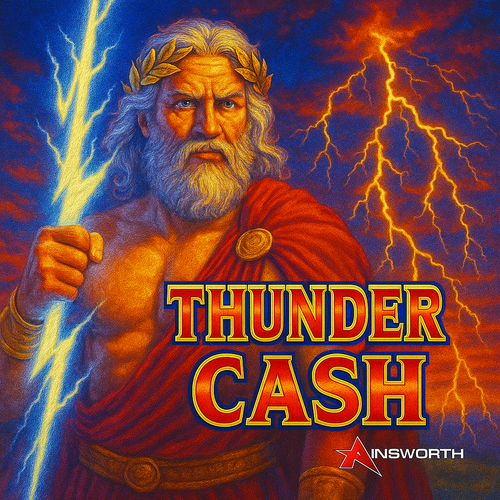When not to buy a bonus: risk management
When Not to Buy Bonus: Risk Management in Bonus Rounds Games
Introduction
In recent years, buying a bonus in online slots has become a popular feature to speed up access to bonus rounds. Instead of waiting for the bonus to be activated when Scatter symbols appear or other conditions are met, the player can immediately pay for the bonus feature. However, despite the appeal of this option, buying a bonus is not always a good strategy. In this article, we look at when buying a bonus can be a risky move and how to apply risk management principles to make informed decisions.
How does buying a bonus work?
The bonus purchase feature allows players to pay a fixed amount for instant access to the bonus round, such as free spins or multipliers. In some games, buying a bonus can also activate special features such as progressive multipliers or additional Wild symbols. This can save time and improve the chances of a big win, but also comes with high risks.
When might buying a bonus be impractical?
1. The high cost of buying a bonus.
One of the main factors to consider when deciding to buy a bonus is its cost. If the cost of the bonus is too high compared to your current bankroll, this can lead to a rapid exhaustion of funds, especially if the bonus does not meet expectations. For example, if the bonus is worth 100x of your bet, and the chance of a big win in the bonus is not very high, it can lead to significant losses.
When to avoid buying a bonus:- When the value of the bonus makes up a significant portion of your bankroll.
- When the probability of getting a big win in the bonus round is low and you're not sure about the payback.
2. High volatility slots.
High-volatility games offer big payoffs, but they can be rare and unpredictable. When buying a bonus in such slots, you risk spending a significant amount without getting the desired result. It is important to remember that high bonus bets in these games can result in serious losses, especially if the bonus is not activated.
When to avoid buying a bonus:- In high-volatility slots, where winnings are rare.
- When your goal is to keep the bankroll for a long time, and buying a bonus can lead to a quick loss of funds.
3. Insufficient slot information.
Not all rebate buying slots have the same conditions for rebate activation and payout. Some games may have hidden mechanics or unfair bonus conditions that are not always obvious to the player. Without proper analysis and understanding of the mechanics of the game, buying a bonus can be unprofitable.
When to avoid buying a bonus:- When you haven't learned the features of the bonus feature in the slot.
- When you do not understand how bonuses are activated or what conditions must be met to receive large payments.
4. Low probability of bonus activation.
Some slots may offer the purchase of a bonus, but with a very low chance of large winnings, making the purchase worthless. If the bonus feature is not activated frequently, or if the payout potential does not justify the cost of purchasing the bonus, it is best to avoid this feature.
When to avoid buying a bonus:- When the probability of activating the bonus is too low.
- When the expected bonus income does not justify the investment.
Principles of risk management when buying a bonus
1. Valuation of bonus and bankroll value.
Before buying a bonus, it is important to understand how much you are willing to spend and how much of your bankroll you are at risk. If buying a bonus is more than 10% of your total pot, it's worth considering carefully whether to risk that amount. Use a strategy that minimizes risk of loss.
2. Estimating slot volatility.
If you're playing a high-volatility slot, be prepared for big swings in the game. In such games, you may not receive bonuses or winnings for a long time, which makes buying a bonus especially risky. It is better to use more stable slots with less volatility, where buying a bonus will bring more predictable results.
3. Use of bonuses with high activation frequency.
If the slot allows you to regularly activate bonuses in the main game, it is possible that buying a bonus is not the best strategy. In such cases, it is wiser to just wait for the activation of the bonus through the game, especially if the likelihood of its activation is high.
4. Bankroll management.
A key aspect of risk management is bankroll management. Always determine in advance how much you are willing to spend on the purchase of bonuses and stick to this limit. This will help avoid the loss of all funds in a short period of time.
When can buying a bonus be justified?
1. Low volatility slot with frequent bonuses.
If a slot has low volatility and provides high frequency bonuses, buying a bonus can be advantageous. In such cases, buying a bonus is a way to speed up the process and start getting wins right away.
2. Slot with a high potential bonus payout.
If the slot has a high RTP (return to player) and bonuses offer large payouts, buying a bonus may be justified. In such games, bonuses can be frequent and profitable, which compensates for the high costs of buying them.
3. When you want to speed up the game.
If your goal is to speed up the game and increase the number of bonus rounds in a limited time, buying a bonus can be a good strategy. This is especially true for players who play slots with interesting bonus mechanics, but do not want to spend too much time waiting for the activation of bonuses.
Conclusion
Buying a bonus can be an interesting tool in a player's arsenal, but it's important to consider the risks associated with this feature. Using the right risk management strategy will help avoid unnecessary losses and increase the chances of success. Assessing bonus cost, slot volatility and bonus activation frequency will help you make informed decisions and maximise your winnings.



















